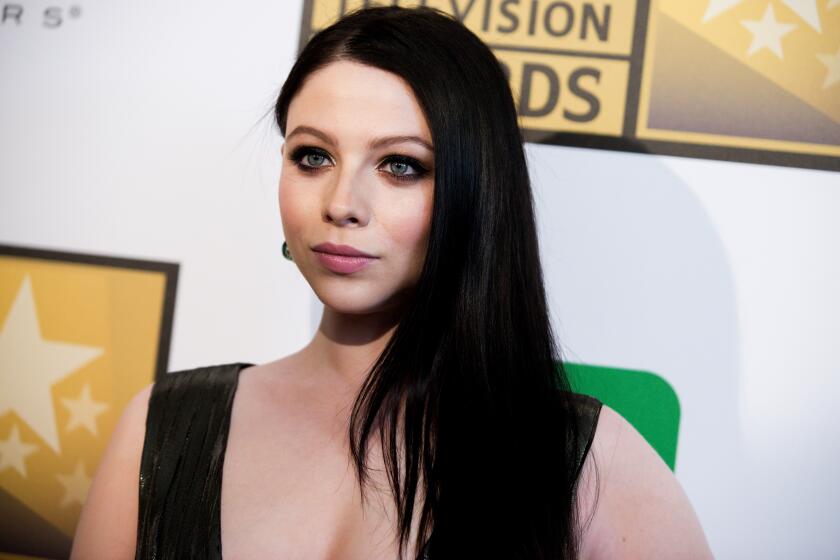The Contenders: Kirsten Dunst of ‘Melancholia’
- Share via
As Justine, the complicated young bride at the center of Lars von Trier’s apocalyptic meditation on depression, “Melancholia,” Kirsten Dunst is called upon to convey great depths of anguish with very little dialogue. But Dunst, 29, delivers such a nuanced, polished performance that it’s easy to see Justine’s grief living behind her eyes as the beautiful woman with the doomed future fumbles her way through her lavish nuptials, leaving a trail of fractured relationships in her wake.
Just as the film was set to open in Los Angeles, Dunst, who took home the lead actress prize when “Melancholia” premiered at the Cannes Film Festival in May, sat down to discuss how she invested the character with her own experiences and those of the controversial Danish auteur, who’s grappled with depression — “all sensible people have,” the filmmaker has said.
Prior to “Melancholia,” had you been interested in working with Lars von Trier?
Those kinds of writer-directors don’t even make movies that often, so it wasn’t even in my head ever.... I’m someone who, I read something and I’m very intuitive. It’s Lars. I was like OK, one of the great auteurs of our time, whether you like him or not, his movies, wants me to be in his movie? I would do anything. I knew this was an opportunity that doesn’t come along for actresses, roles like this. He’s one of the only people of his caliber that write all of his movies surrounding women too.
Did you discuss what he wanted from you in terms of your performance?
He wanted this look in my eyes, this dead look in my eyes. He opened up to me about the things he went through with his depression, but then when we go to work, he’s not someone who over-analyzes… he allows it to live when it comes down to the days of shooting. His energy even feels like he’s acting with you in a way — his vibe on set really permeates the scene and the energy. He’s so sensitive and open and emotionally just there that there’s a certain freedom, like you can do no wrong in a way, which is such a positive thing for actors to feel.
Was it difficult to have to wear such an elaborate bridal gown for so much of the film?
Yeah. I hated that wedding dress. Luckily my character hated it too.
Justine is a very difficult person. Were you concerned at all about making her likable or sympathetic?
I wasn’t worried about it. I don’t feel like what I project is unlikable but Justine’s a hard person, you can easily dislike her or be annoyed by her, or get frustrated. But it’s also kind of fun. I would love to play a villain. That’s my next thing. After “Melancholia,” my one friend was like, “That’s what you should do because you were icy and mean.” I never think about myself that way, but I was like, “Oh, that sounds so fun, you’re right.”
How much of what she experiences emotionally in the film is drawn from what Lars went through, would you say?
I think all those things, that level of depression where you can’t physically bathe yourself, that must be very close for him. I remember doing that scene actually [in which Justine is unable to bathe herself] and he was like, “I want you to make a sound like a dying animal.” To hear him direct me like that, clearly that’s how he felt and that’s what he experienced. That’s how I kind of felt when he’d give me certain directions, you’d feel his pain.
The film has gotten so many stellar reviews. I would imagine that must be incredibly gratifying.
I’m so happy that we put out a movie about depression. It’s such an uncinematic thing to shoot and Lars, he’s incredible that he could write a script about that and make you want to watch it. It’s so pretty to look at, the movie. Even if you don’t like it, there are pretty things to look at in the movie. Even if you hate Lars’ movie, we made something to talk about.
More to Read
The biggest entertainment stories
Get our big stories about Hollywood, film, television, music, arts, culture and more right in your inbox as soon as they publish.
You may occasionally receive promotional content from the Los Angeles Times.











